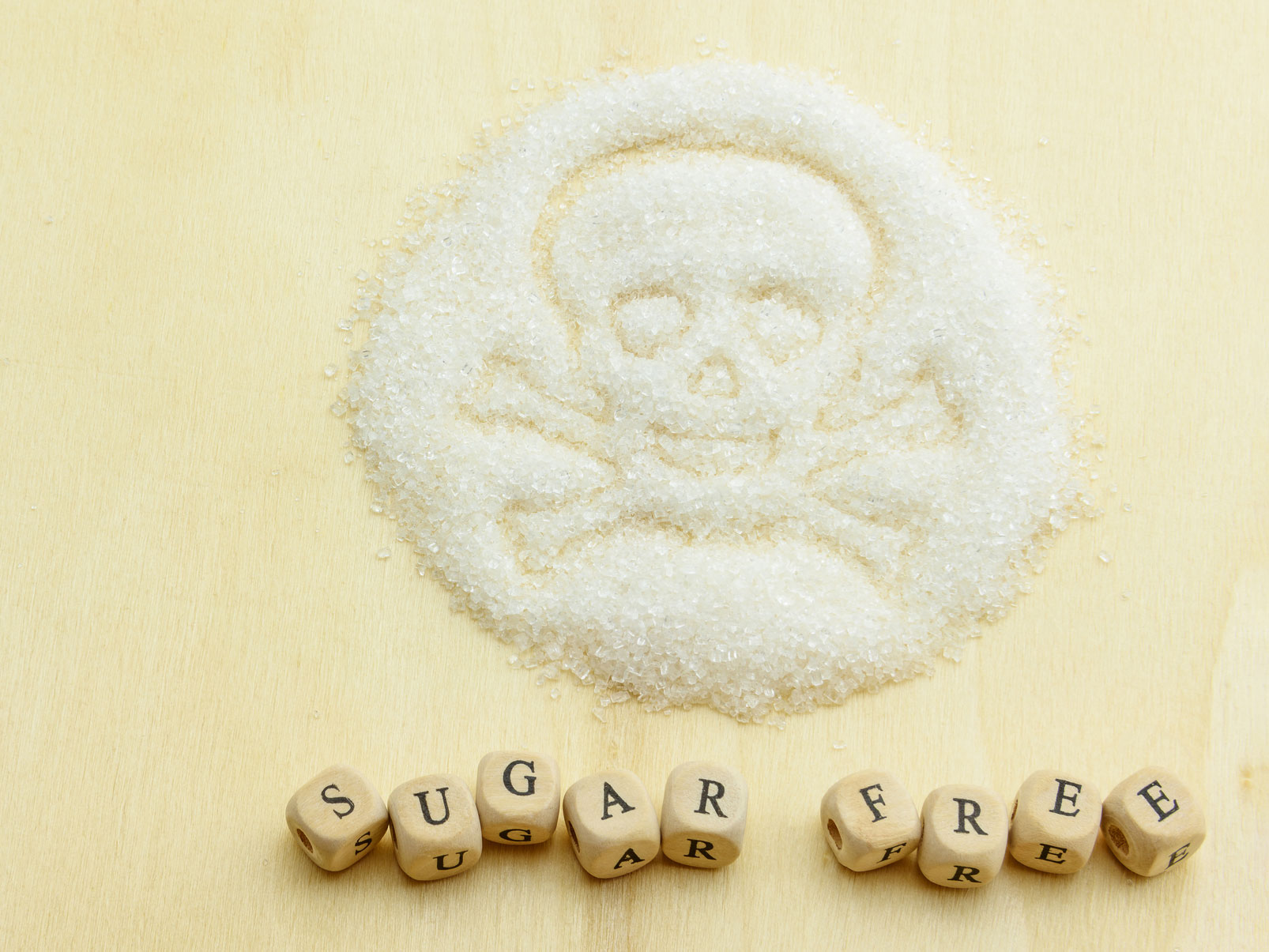Get Easy Health Digest™ in your inbox and don’t miss a thing when you subscribe today. Plus, get the free bonus report, Mother Nature’s Tips, Tricks and Remedies for Cholesterol, Blood Pressure & Blood Sugar as my way of saying welcome to the community!
Why one scientist says all aspartame should be pulled from grocers’ shelves

It feels like aspartame’s been around forever giving our diet Coke, diet Snapple and Yoplait yogurt that super sweet (yet very strange) taste. But it’s only been around since 1965.
A chemist stumbled upon it when he was trying to create an-anti ulcer drug. Pretty soon, it was everywhere — in packets on diner counters, in your diet Tab, in your holiday Jell-O mold. But the research supporting aspartame’s safety has always been sketchy at best.
In fact, as early as the mid-1980s, there was research showing that aspartame was toxic to living organisms. Yet, more than fifty years after it was created, aspartame is still in a wide range of everyday items like yogurt, jelly, popsicles, diet drinks and more. It’s even in certain vitamins and children’s Advil. Why?
Government corruption, most likely. We all know that certain government agencies (the FDA *cough, cough*) often make decisions that prioritize corporate interests over the health of the American people.
Well, apparently, they have the same problem in Europe. A new research paper calls out the European Food Safety Authority (EFSA) for turning a blind eye to studies demonstrating the dangers of aspartame…
European food regulators ignore evidence aspartame is unsafe
Professor Erik Millstone, a researcher from the University of Sussex and expert on food chemical safety policy, believes products that contain aspartame should be pulled from shelves in the European Union and the UK. Why?
Because after reviewing the research on aspartame, he found that the European Food Safety Authority (EFSA) cherrypicked studies to verify the sweetener’s safety.
They disregarded 73 studies that showed aspartame could cause harm. But they used 84 percent of studies that showed aspartame caused no harm, without questioning the scientific rigor or motives of these studies. Basically, they were completely open-minded about evidence for aspartame’s safety and completely close-minded to evidence of its unsafety.
“It is clear from this research that the EFSA scientists failed to acknowledge numerous inadequacies in the reassuring studies but instead picked up on tiny imperfections in all the studies providing evidence that aspartame may be unsafe,” said Millstone.
Professor Millstone thinks products containing aspartame should be pulled from shelves until the evidence is reexamined in a more balanced way. He also thinks the European Food Safety Authority (EFSA) needs to overhaul its decision-making process and become more transparent. Right now, they make important public health decisions in closed-door meetings.
“In my opinion, based on this research, the question of whether commercial conflicts of interest may have affected the panel’s report can never be adequately ruled out because all meetings all took place behind closed doors.”
Start your aspartame-free life
So, be an advocate for your own health rather than blindly trusting government organizations to tell you what’s safe and healthy. That may mean staying away from artificial sweeteners.
Related: 20 symptoms that could disappear when you ditch diet drinks
If you do decide to avoid aspartame and other artificial sweeteners, you’ll need to read labels religiously, especially if you shop at big-box or conventional grocery stores. The number of products filled with aspartame, sucralose and other artificial sweeteners in these stores is astounding. Here are some of the most common culprits:
- Diet soda
- Sugar-free ice cream
- Popsicles
- Chewable vitamins and medicines
- Reduced-calorie fruit juice
- Sports drinks
- Vegetable drinks
- Meal replacements
- Instant hot cocoa
- Flavored water
- Cereal
- Protein drinks
- Nutritional bars
- Jelly
- Ketchup
- Gum
- Yogurt
- Pudding
- Microwavable popcorn
- Syrup
- Sugarless candy
- Pedialyte
- Bread, English muffins and other baked goods
If looking for artificial sweeteners in everything you buy sounds daunting, keep it simple…
Stay away from anything labeled “diet,” “reduced calorie,” or “sugar-free.” These all contain artificial sweeteners. So, if you don’t go anywhere near that stuff, you’re on the fast-track to an aspartame-free life.
Editor’s note: Did you know that when you take your body from acid to alkaline you can boost your energy, lose weight, soothe digestion, avoid illness and achieve wellness? Click here to discover The Alkaline Secret to Ultimate Vitality and revive your life today!
Sources:
- New research casts doubts on safety of world’s most popular artificial sweetener — MedicalXpress
- EFSA’s toxicological assessment of aspartame: was it even-handedly trying to identify possible unreliable positives and unreliable negatives? — Archives of Public Health
- The Truth About Aspartame Side Effects — Healthline
- Nutrasweet — the History of this Toxic Chemical and Its Promotion (Part 1) — Organic Consumers Association
- 24 foods that artificial sweeteners are hiding in — Business Insider













